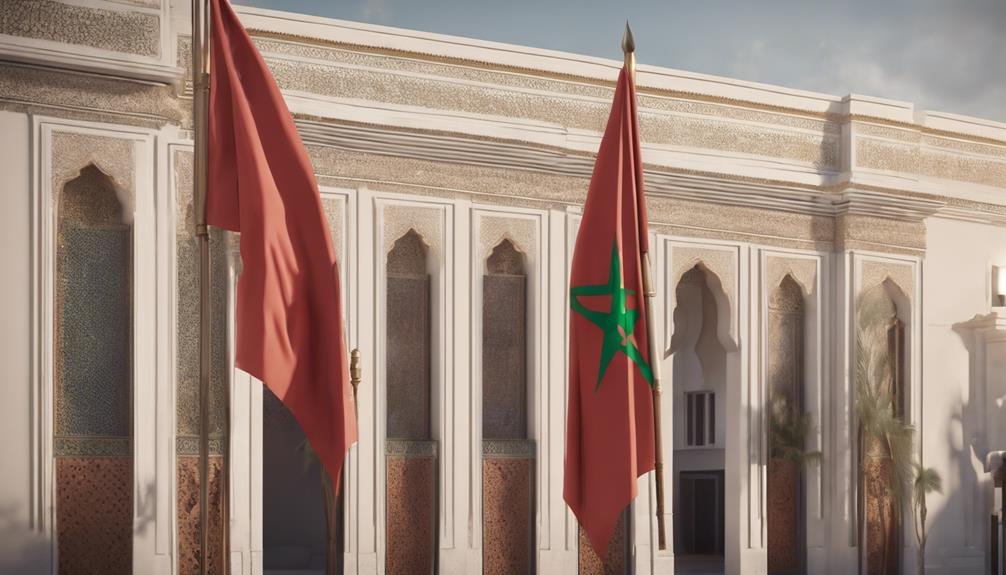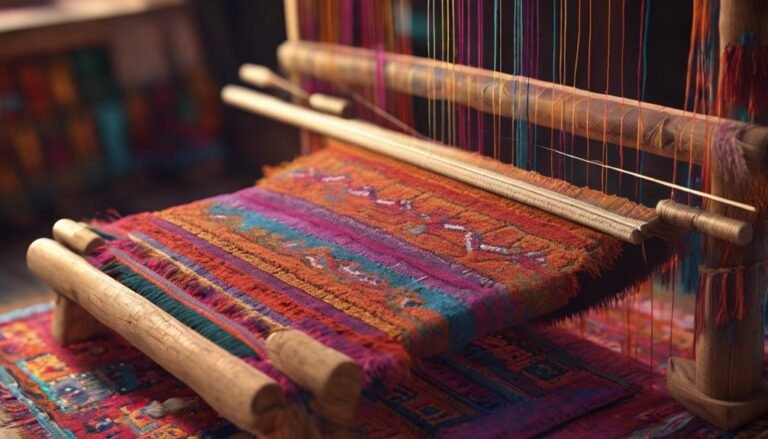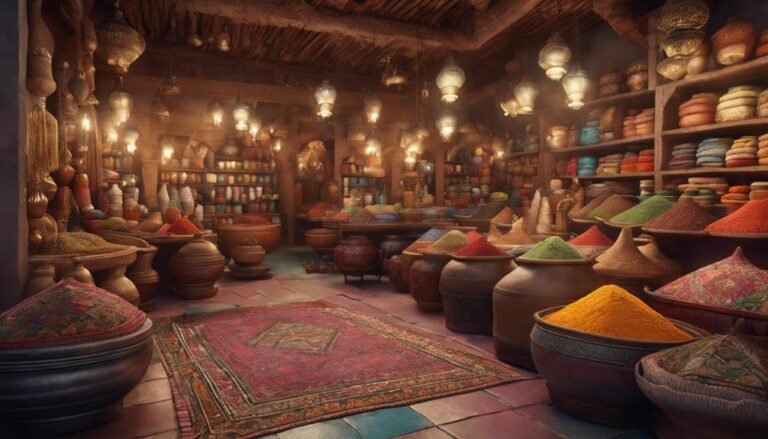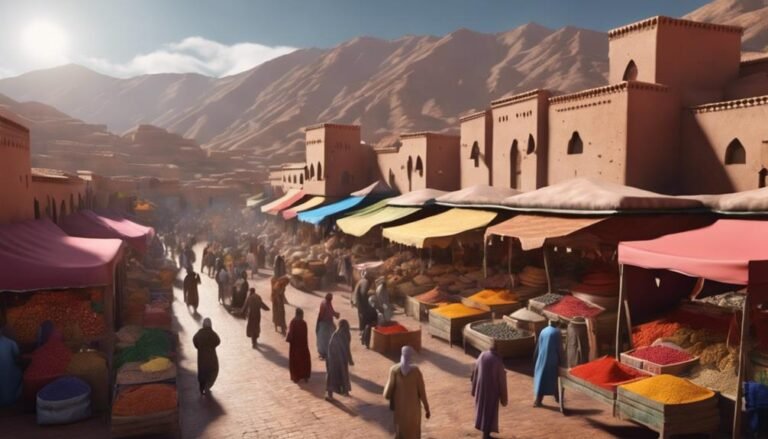When visiting Morocco diplomatically, it is important to adhere to specific protocols. Official invitations are issued by the host nation and promptly acknowledged by you, detailing the purpose, agenda, and logistical arrangements. Show respect for Moroccan customs, dressing modestly, offering tea, and following etiquette. Security, transportation measures, and meticulous planning are essential for safety and smooth execution. When meeting Moroccan officials, dress formally, present culturally reflective gifts, and maintain a courteous demeanor. Adhering to protocol ensures positive diplomatic relations. Understanding and respecting these protocols are key to successful engagements in Morocco.
Key Takeaways
- Respect Moroccan customs and show cultural sensitivity.
- Dress modestly and adhere to local expectations.
- Greet with a handshake and maintain eye contact.
- Present official gifts reflecting cultural values.
- Address officials with appropriate titles and language.
Historical Background of Diplomatic Visits
In the domain of international relations, the historical background of diplomatic visits reveals a complex tapestry of traditions and customs that have evolved over centuries. Diplomatic relations between nations have long been governed by international protocols aimed at maintaining cordial relationships and fostering cooperation. Throughout history, diplomatic visits have played a pivotal role in the exchange of information, negotiation of treaties, and the establishment of alliances between countries. These visits often symbolize a commitment to peaceful coexistence and dialogue in the face of differing ideologies or interests.
The evolution of diplomatic visits reflects the changing dynamics of global politics and the increasing interdependence of nations. From the elaborate ceremonies of ancient empires to the formalized protocols of modern diplomacy, the customs surrounding diplomatic visits have adapted to meet the needs of an ever-changing world. Understanding the historical background of diplomatic visits provides valuable insights into the complexities of international relations and the importance of upholding established protocols in fostering diplomatic cooperation.
Official Invitation and Acceptance
The commencement of diplomatic engagements often hinges on the formal exchange of official invitations and their subsequent acceptance, marking the initial steps towards establishing bilateral relations. When it comes to Moroccan diplomatic visits, adhering to official protocol is essential in ensuring a smooth and respectful interaction between nations.
To provide a clearer understanding of this process, let's examine a table showcasing the key elements of the official invitation and acceptance in Moroccan diplomatic relations:
| Official Invitation | Acceptance |
|---|---|
| Issued by the hosting nation | Acknowledged promptly by the visiting party |
| Outlines purpose and details of visit | Confirms attendance and proposed schedule |
| Sent through official diplomatic channels | May include proposed agenda for discussions |
| Indicates desired outcomes of the meeting | Confirms logistical arrangements and security details |
| Reflects the diplomatic tone and formality | Expresses gratitude for the invitation |
Etiquette and Cultural Sensitivity
Demonstrate respect for Moroccan customs and traditions by incorporating essential etiquette and displaying cultural sensitivity during diplomatic interactions.
Understanding cultural norms is vital when engaging in diplomatic visits to Morocco. Moroccans value hospitality customs, such as offering tea to guests as a sign of welcome and friendship. It's essential to accept this gesture graciously and engage in polite conversation during such interactions.
Additionally, when attending formal events, dressing modestly is highly appreciated in Moroccan culture. Men should wear suits, while women are expected to dress conservatively, covering their shoulders and knees.
Moreover, it's customary to greet others with a handshake and maintain eye contact during conversations as a sign of respect. Being mindful of these cultural nuances won't only show your appreciation for Moroccan traditions but also help foster positive diplomatic relations.
Security and Transportation Arrangements
When planning security and transportation arrangements for a Moroccan diplomatic visit, it's crucial to provide an overview of the security measures in place.
You should carefully consider the logistics of transportation to guarantee seamless movement throughout the visit.
Detailed safety protocols should be established and communicated to all parties involved to secure a successful visit.
Security Measures Overview
During Moroccan diplomatic visits, security and transportation arrangements are meticulously planned and executed to guarantee the safety and smooth movement of all personnel involved.
Security protocols are strictly adhered to, encompassing thorough background checks on all visitors and adherence to visitor regulations set forth by Moroccan authorities. Access to diplomatic venues is restricted to authorized personnel only, with stringent identification verification processes in place. Highly trained security personnel are strategically positioned to monitor and respond to any potential threats promptly. Additionally, advanced security technologies such as surveillance cameras and metal detectors are utilized to enhance safety measures.
These detailed security measures work in conjunction with carefully coordinated transportation arrangements to ensure the seamless flow of diplomatic visits in Morocco.
Transport Logistics Planning
To guarantee the efficient coordination of security and transportation arrangements for Moroccan diplomatic visits, meticulous planning and execution are paramount. Venue selection and scheduling play a vital role in ensuring smooth logistics. Careful consideration is given to choosing appropriate venues that accommodate the delegation's size and security needs. Additionally, scheduling is meticulously arranged to align with the visit's objectives and itinerary, minimizing disruptions and enhancing efficiency.
Communication and coordination are key components in transport logistics planning. Regular communication between all involved parties, including security personnel, transportation providers, and diplomatic staff, is essential to ensure seamless execution. Coordination efforts focus on syncing schedules, routes, and security protocols to guarantee a safe and organized transportation process throughout the visit.
Safety Protocol Details
For a seamless implementation of safety protocols during Moroccan diplomatic visits, meticulous attention to security and transportation arrangements is vital. Safety precautions are crucial to guarantee the well-being of all involved parties. Emergency procedures must be clearly outlined and communicated to everyone participating in the visit. Here is a breakdown of the key elements in the safety protocol details:
| Safety Precautions | Emergency Procedures |
|---|---|
| – Thorough security checks at all entry points | – Designated evacuation routes |
| – Trained security personnel present at all times | – Emergency contact information provided |
| – Secure transportation arrangements | – Regular emergency drills conducted |
| – Monitoring systems in place | – Immediate response to any security threat |
Meeting With Moroccan Officials
Upon the arrival of your delegation in Morocco, it's essential to be mindful of the established protocols for meeting with Moroccan officials. When meeting with Moroccan officials, it's customary to dress in formal attire as a sign of respect. Men typically wear suits, while women opt for conservative business attire. This showcases your professionalism and regard for Moroccan customs.
Moreover, presenting official gifts during these meetings is a common practice. These gifts should reflect the cultural values of your country and be of good quality. It's advisable to avoid items that may be considered overly extravagant or personal, as this could be misinterpreted.
When interacting with Moroccan officials, it's important to maintain a courteous and respectful demeanor. Address them using their appropriate titles and show appreciation for their time and hospitality. Remember to listen attentively and avoid interrupting when they're speaking.
Gift Giving and Protocol Observance
When engaging in gift-giving and observing diplomatic protocols during your interactions with Moroccan officials, it's important to adhere to cultural norms and display a high level of respect and awareness.
Gift exchange in Moroccan diplomatic settings is a significant aspect of building relationships and showing appreciation. When presenting gifts, consider items that reflect your country or organization while also aligning with Moroccan customs. It's advisable to avoid gifts that may be perceived as overly important or guarantee.
Adherence to protocol is essential for maintaining positive diplomatic relations. Understanding the hierarchical structure within Moroccan official circles is necessary to make sure that proper respect is shown to individuals based on their rank and status. Additionally, observing formalities such as addressing officials with their appropriate titles and using appropriate language is key.
Conclusion
In summary, when visiting Morocco on diplomatic business, it's vital to adhere to the established protocols to guarantee a successful and respectful visit.
By following the proper etiquette, cultural sensitivities, and security measures, you can navigate through the diplomatic landscape with ease.
Remember, following these protocols isn't just important, it's as essential as breathing in the desert heat.
Safe travels and fruitful diplomatic engagements await you in Morocco.

The Editorial Team is a passionate group of Morocco enthusiasts dedicated to sharing the beauty, culture, and wonders of this captivating country. With diverse backgrounds and a deep love for travel, we strive to bring you engaging and informative content that inspires your Moroccan adventures. From uncovering hidden gems and sharing local insights to exploring mouthwatering cuisine and showcasing the vibrant lifestyle, our team is committed to providing you with valuable resources and exciting stories that enhance your exploration of Morocco. Join us on this journey as we celebrate the rich heritage and unforgettable experiences that make Morocco truly special.







